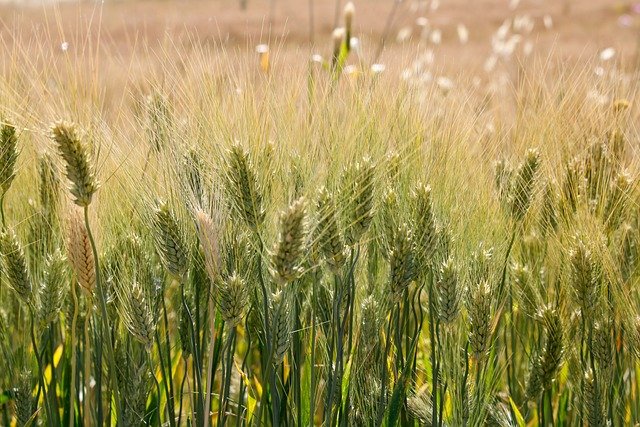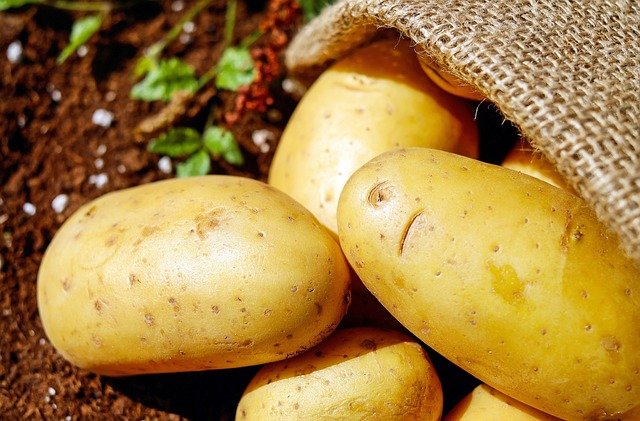Introduction
Does Potatoes Have Gluten? The simple answer is no; Potatoes are a staple food in many diets around the world, known for their versatility and nutritional benefits. However, for those with gluten-related disorders such as celiac disease or gluten sensitivity, the question of whether potatoes contain gluten is of significant importance. This article delves into the relationship between potatoes and gluten, offering insights for a safe and healthy diet.
What is Gluten?
Gluten is a group of proteins found primarily in wheat, barley, and rye. It acts as a binding agent, giving bread its chewy texture and is also used in a variety of other food products for texture and flavor enhancement. For individuals with celiac disease, consuming gluten triggers an immune response that damages the intestine, while others may experience varying degrees of gluten sensitivity.

Potatoes 101: What You Need to Know
Potatoes are tubers that are classified as a starchy vegetable. They are not grains like wheat or barley, which are common sources of gluten. There are several varieties of potatoes including russet, red, yellow, and sweet potatoes, each with unique flavors and culinary uses. Potatoes are rich in vitamins C and B6, potassium, and fiber, especially when eaten with their skin.
Does Potatoes Have Gluten?
Does Potatoes Have Gluten? The simple answer is no; potatoes in their natural state are gluten-free. This makes them a safe choice for those on a gluten-free diet. The confusion about potatoes and gluten often arises due to cross-contamination or when potatoes are used in prepared foods that contain gluten ingredients.
Cross-Contamination Risks
Cross-contamination can occur during the processing of potatoes, particularly in facilities that also process gluten-containing foods. For example, french fries made in fryers also used for batter-coated foods can contain traces of gluten. Similarly, flavored potato chips might include ingredients derived from gluten sources.
Safe Handling Practices for Gluten-Free Diets
To safely include potatoes in a gluten-free diet, consider the following tips:
- Purchase whole, unprocessed potatoes to cook at home.
- Always check labels on packaged potato products like chips or fries for gluten-containing ingredients.
- Use separate cooking and preparation surfaces to avoid cross-contamination.
Gluten-Free Potato Recipes
There are countless ways to enjoy potatoes without the risk of gluten:
- Boiled, mashed, or baked potatoes with a sprinkle of olive oil and herbs.
- Homemade potato salads with gluten-free dressings.
- Roasted potatoes with garlic and rosemary.
Potatoes in a Gluten-Free Diet: Benefits and Considerations
Potatoes are an excellent source of energy and fiber, which are important components of a balanced gluten-free diet. They provide essential nutrients that might be lacking in a diet that excludes whole grains. However, it’s important to balance potato intake with other nutrient-dense foods like fruits, vegetables, and lean proteins to maintain overall health.
Understanding Labels and Potato Products
Reading labels is crucial for avoiding gluten in potato products. Look for labels that specify the product is gluten-free. Be cautious of terms like “modified food starch,” which can be derived from wheat, and other hidden sources of gluten.
The Role of Potatoes in Celiac Disease
For individuals with celiac disease, potatoes can play a key role in a nutritious diet if handled and prepared safely, away from gluten contaminants. They are naturally gluten-free and provide essential nutrients that might be lacking due to other dietary restrictions.
Expert Opinions: What Nutritionists Say About Potatoes and Gluten
Nutritionists affirm that potatoes are a healthy, gluten-free option if prepared correctly and not exposed to gluten during processing. They recommend using potatoes as a wholesome part of a gluten-free diet due to their nutritional profile and versatility in cooking.
Conclusion and Recommendations
Potatoes are a safe and nutritious choice for those concerned about gluten. By managing cross-contamination risks and making informed choices about potato products, individuals with gluten sensitivities or celiac disease can enjoy potatoes without worry. Always consult healthcare or dietary professionals when making significant changes to your diet, especially when managing a health condition like celiac disease.

